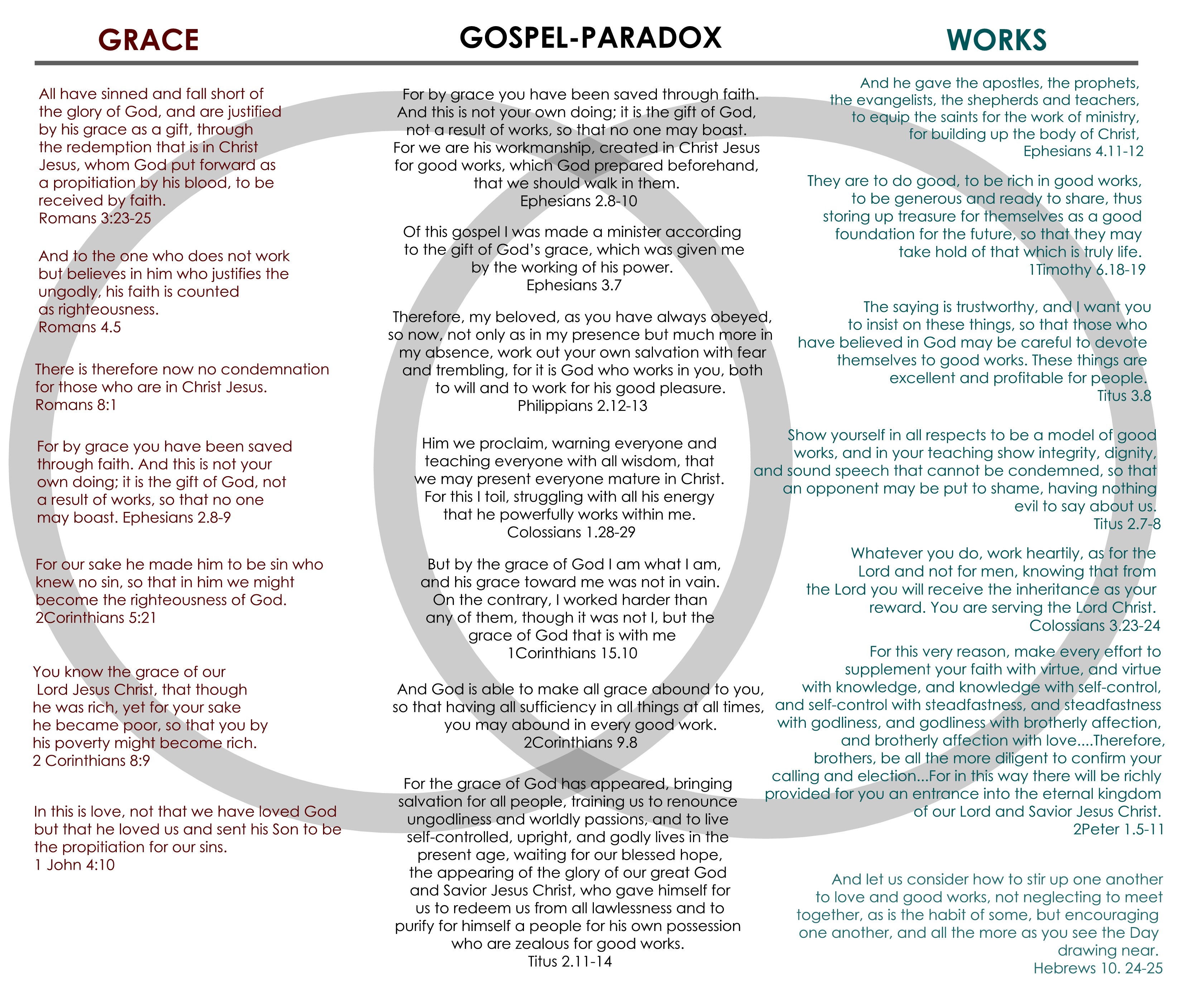Our sanctification began before CREATION. According to His purposes, to the praise of His grace, God SET APART a people to be saved from sin. Sanctification is completely accomplished (IN OUR SOULS) through faith in the death and resurrection of Jesus, increased throughout life in our flesh by the Spirit (IN OUR BODIES) , and completed at Jesus’ return.
There some argument over prepratory sanctification, minimal argument over positional sanctification, and a lot of argument over progressive sanctification. Essentially, there is a lot of confusion about how we grow in our holiness if Jesus has already made us holy. It is true that God demands our holiness. That is why he sent His Son to be a substitute for us–he produced the holiness I needed through a sinless life and paid the penalty for the unholiness of my sin.
God demands perfection, that is why He gave us His substitute. But God also commands holiness, that is why He gave us His Spirit.
We have been placed IN CHRIST through union with Christ. This is something God has done. It is something that does not change regardless of what we do or don’t do. Our position is secure now and in eternity. We are God’s adopted children, heirs with Christ, never to be forsaken or separated from God’s love.
But, even if your UNION with Christ cannot change (for better or worse), our COMMUNION with Him can. We are IN CHRIST, but we can MATURE IN CHRIST. Our relationship with Jesus can grow in its intimacy, sanctity, and joy. In other words, everything was done by Jesus, not so that you could do nothing, but so that you would desire and be able to do something. That something is a gospel-inspired and spirit-empowered pursuit of holiness in our bodies (lives).
The reason we are righteous is because Jesus died FOR us. The reason we can pursue holiness is because Jesus lives IN us.
The “putting off” of the old self/sin, as Paul writes in Colossians 3, is called MORTIFICATION. The “putting on” of the new self/righteousness, is called VIVIFICATION. Mortification describes the lessening influence of sin in our lives, and the vivification describes the increasing influence of Jesus in our lives. Neither of these establishes or affects our position in Christ which has been secured by Christ. On the contrary, they flow from a deep belief in that position. We do not resist unholiness and/or pursue holiness believing God loves us when we succeed or hates us when we fail. Rather, our pursuit of holiness is inspired by the gospel which declares I am accepted based on Jesus obedience, not mine. This pursuit is not out of a desire to be loved more, but out of a desire to love God, and others, as He has loved me…more.
A pursuit of holiness is not merely a response to God’s grace, it is the effect of it.
How does this happen? How do we resist unholiness and pursue holiness? First, it begins by meditating on grace. The same grace that saves us from legalism (believing that my obedience to the law saves) is the same grace that saves us from lawlessness. Paul writes in Titus 2.11-14:
11 For the grace of God has appeared, bringing salvation for all people, 12 training us to renounce ungodliness and worldly passions, and to live self-controlled, upright, and godly lives in the present age, 13 waiting for our blessed hope, the appearing of the glory of our great God and Savior Jesus Christ, 14 who gave himself for us to redeem us from all lawlessness and to purify for himself a people for his own possession who are zealous for good works.
But how do we engage this grace? How does grace “train u to renounce” ungodliness? Is this just an cerebral endeavor? I believe that what should always begins in the heart and continues with a setting of the mind (See Colossians 3) should, and will, flow out into the hands. And God has given us tools through which we can experience the grace of Jesus. Some of these include:
GRACE FROM MEDITATION ON JESUS (1Corinthians 3.18)
GRACE FROM STUDY OF GOD’S WORD ABOUT JESUS (John 17.17)
GRACE FROM PRAYER THROUGH JESUS (Ephesians 6.18; Phil 4.6)
GRACE FROM WORSHIP OF JESUS (Ephesians 5.18-20; Col.3.16-17)
GRACE FROM OBEDIENCE TO JESUS (John 15.9-11)
GRACE FROM FELLOWSHIP WITH JESUS’ PEOPLE (Hebrews 10.24-25)
GRACE FROM MAKING DISCIPLES OF JESUS (Matthew 28.19-20)
Even if these tools do not change Jesus affection for us, they will change our affections for Jesus. They will help us become in practice what we already are in position.
This requires effort as seen in Ephesians 4, Romans 8, Colossians 3, 1Peter 1, 2Peter 2, and any number of other letters which call us to strive, put off, put on, and make every effort. Without question, we are not to live by works, but we will work if we are really alive! (See James 2).
Effort is not wrong. It is not wrong to work to be moral. It is not wrong to work hard doing good. It is not wrong to work at learning more about God. It is not wrong to work at being a better husband/wife. It is not wrong to work to live more like Christ. It is wrong to believe that your efforts are meritous in nature.
Effort for the the purpose of meriting favor is condemned. But effort that is driven by the gospel is a commanded.
And remember what an old Puritan said…”For every look you take at your sanctification, take two looks at your justification.” Suffice to say…we must look at our sanctification…but there is an important order to things.



